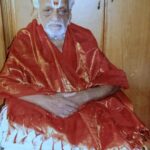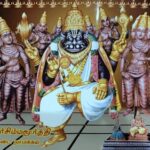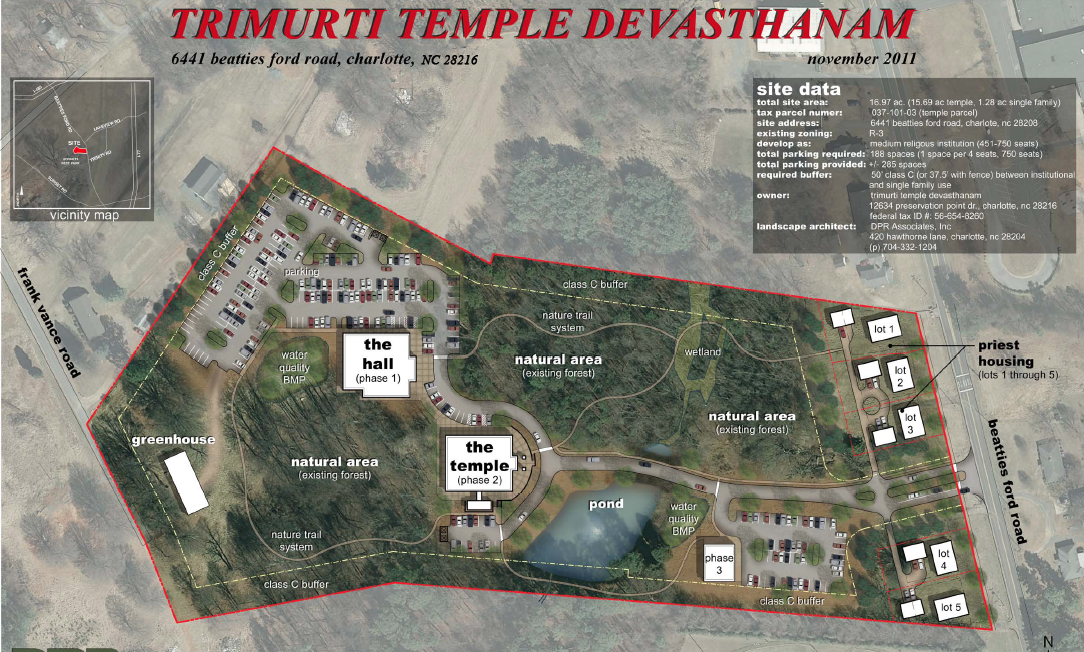Trimurti Temple Devasthanam is a registered private foundation with tax-exempt status, incorporated in February 2000. The Foundation’s mission is to build a traditional temple in the South Indian architectural style as prescribed in the Agama Shastras. The Temple, sprawling over 17.5 acres, is surrounded by tall and majestic trees with a natural pond providing an aesthetically pleasing landscape. Located near Hornets’ Nest Park at 6441 Beatties Ford Road, Charlotte, NC 28216, the Temple broke ground in 2011 and it now houses 14 independent Sannathis dedicated to Brahma, Vishnu, Siva, Saraswathi, Mahalakshmi, Parvathi, Durga, Raman, Seetha, Lakshmanan, Lakshmihayagreevar, Hanuman, Ganesha, Bala Murugan, Bala Ganapathy and the Navagrahas. Trimurti Temple is probably the first and the only temple in the United States that’s home to the Hindu Trinity – Brahma, Vishnu and Siva, under one roof! While the core structures for all the Sannathis are in place, construction of their characteristic mandapams as well as the grand entrance (Raja Gopuram) is currently in the planning stages. The temple is complete with all the Vahanams – Annapakshi for Brahma, Garudan for Venkateshwara and Nandi for Siva. Future plan includes traditional Ayyappan and Guruvayoorappan temples and a community hall for cultural and educational events on the Temple campus.
Credit for the conceptualization of Trimurti Temple Devasthanam belongs to the Late Pandit Sri. Navalpakkam Varadhachariar, the family Bragaspathi of the founding trustee Sri. Narasimhan Jagannathan. When the young Jagannathan came under the tutelage of Pandit Navalpakkam Varadhachariar, an eminent scholar of the Vedas and Shastras, the Pandit expressed an inkling that Sri. Jagannathan would go to the US and build a temple there later in his life. Several years elapsed and the prophetic inkling became a reality when Jagannathan was crisscrossing the United States, visiting prominent temples, studying how temples were designed and built, while at the same time consulting with various Sthapathis (experts on temple architecture and gifted sculptors) for guidance. His eleven years of hard work finally came to fruition in the form of Trimurti Temple Devasthanam (TTD) in Charlotte, North Carolina.
build a temple there later in his life. Several years elapsed and the prophetic inkling became a reality when Jagannathan was crisscrossing the United States, visiting prominent temples, studying how temples were designed and built, while at the same time consulting with various Sthapathis (experts on temple architecture and gifted sculptors) for guidance. His eleven years of hard work finally came to fruition in the form of Trimurti Temple Devasthanam (TTD) in Charlotte, North Carolina.
The ancestral home of the Founding Trustee is a small village, Valayapatti, near the famous city of Namakkal. Namakkal is home to the renowned Sri. Narasimhar temple, built around the 8th century. In building the Trimurti Temple, Sri. Jagannathan draws inspiration not only from his family deity Narasimhar’s Namakkal temple but also from the experience gained in renovating the Venkatramana Perumal temple in his hometown of Valayapatti. The temple was in a dilapidated state in the early 2000’s. Sri Jagannathan’s family renovated and brought it back to its old glory and the temple was consecrated in 2003.
One of the unique features of the Trimurti Temple Devasthanam is seen in the Ramar Sannathi. The Vigraham draws inspiration from the Eri Kaatha Ramar (எரி காத்த ராமர்) temple in Maduranthakam, near Chennai. This is the only temple that has Sri. Rama in a kalyana kolam as a Grihastha, where Seetha is holding Sri. Rama’s hand. The Ramar Sannathi at Trimurti Temple Devasthanam bears resemblance to this Vigraham at Maduranthakam.
The Trimurti Temple Devasthanam follows the Pancharatra theology. The Pancharatra agama believes in the theory of how creation manifested from the Godhead as Purusha and Prakriti with the Parabrahman manifesting in five possible forms: Paraswaroopam (eternal supreme), Vyuharoopam (gunas relating to creation of this world), Vibhavaroopam (the incarnations), Antaryamin (presence felt within oneself), and Archaroopam (icon/form filled with symbolism).
possible forms: Paraswaroopam (eternal supreme), Vyuharoopam (gunas relating to creation of this world), Vibhavaroopam (the incarnations), Antaryamin (presence felt within oneself), and Archaroopam (icon/form filled with symbolism).
The vision for Trimurti Temple is that it will be built and fully developed by devotees that come to pray. The temple will enrich our lives both spiritually and culturally. It will not only serve as a place of worship but also as a hub for cultural activities, spreading Hindu faith, traditions and customs – A tranquil shrine promoting peace, harmony and happiness.

